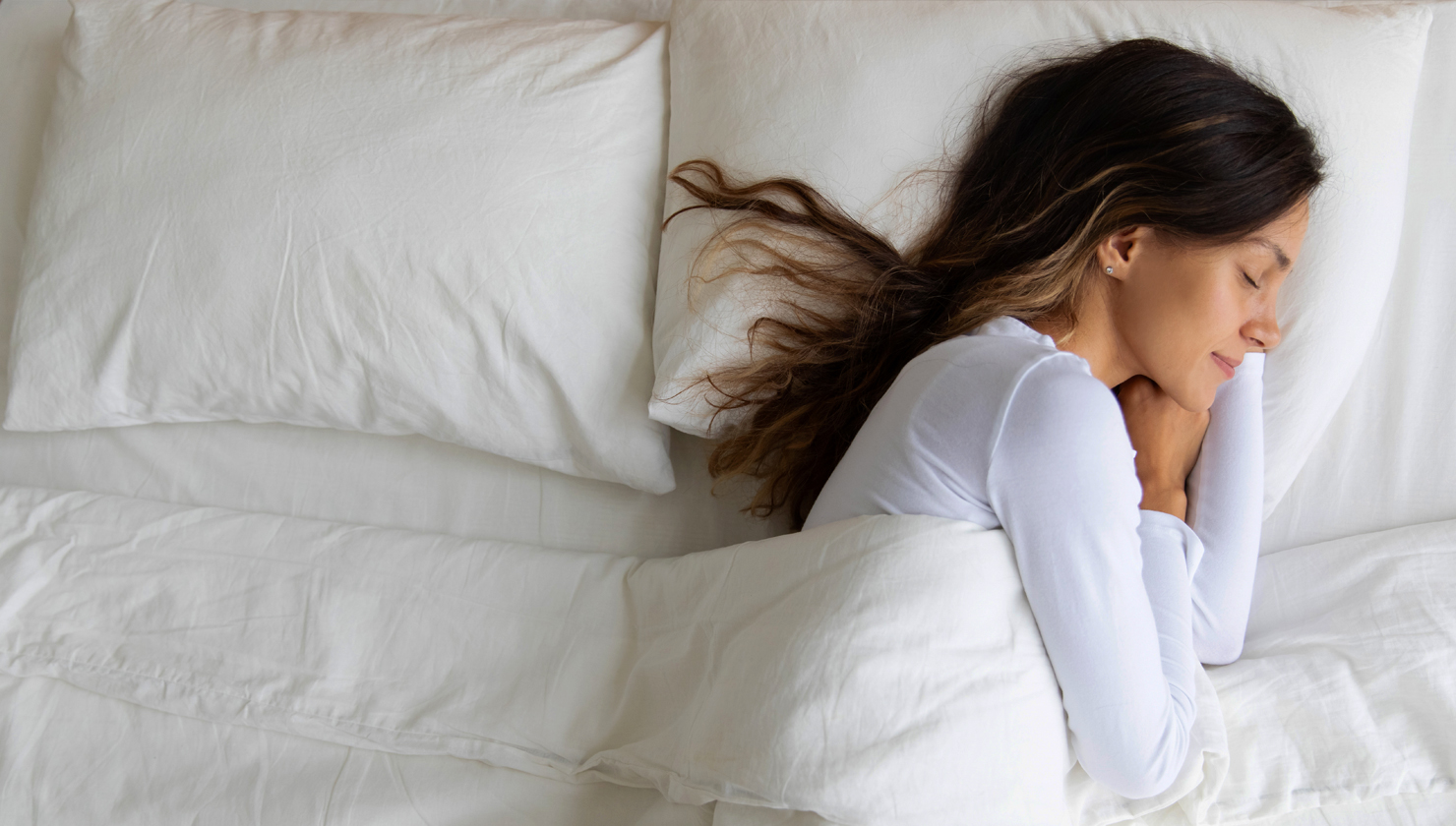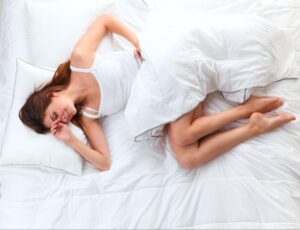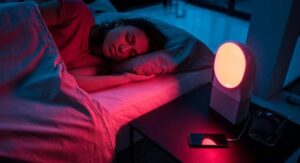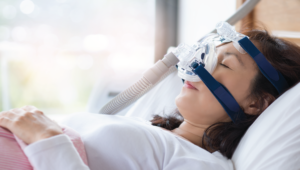If you’ve ever struggled with sleep at the end of a long day, you know how powerless and exhausting it can feel. Sleepless nights aren’t fun for anyone, but there are a few things you can try before bedtime to help you fall asleep.
So if counting sheep doesn’t do the trick for you anymore, keep reading for our top 10 tips for falling asleep faster!
How to Fall Asleep Faster
1. Maintain a Routine
Establishing a realistic nightly routine can be considerably helpful in helping your body get to sleep faster thanks to our body’s regulatory system as the circadian rhythm.
Find a time that works for you and commit to going to bed around this same time as consistently as possible. With a solid routine, your circadian rhythm will help your body naturally adjust to this schedule over time, making it easier to fall asleep and wake up.
A bedtime routine should also include at least 30 minutes to an hour dedicated to winding down. During your wind down, you should refrain from screen time and avoid a large meal or snack. If you’re hungry, have something light, as the digestion process makes the process of falling asleep more difficult. We suggest taking a warm shower or bath during this time to not only cleanse the day away but also aid in the process of falling asleep. Learn more about creating a bedtime routine.
2. Get Outside
Getting outside is also incredibly important to maintaining and supporting our body’s internal clock.
Getting outside during daylight hours allows our body to recognize that it’s daytime, keeps our clock ticking, and will naturally help us feel sleepier by bedtime.
If you can’t get outside, try sitting at a window for at least 15 minutes and it should have similar effects.
3. Get Active
Exercise has a proven positive impact on sleep quality.
According to a 2017 meta-analysis, Trusted Source found 29 studies concluding that exercising may improve the quality or the duration of sleep.
Another study conducted in 2021 found that exercising for 60 minutes 4-5 times a week for 8-12 weeks significantly improved primary insomnia, which is the inability to fall or stay asleep.
As a bonus, try heading outside for a daily activity!
4. Lower Your Thermostat
Did you know being too hot or too cold can play a big part in our ability to sleep?
Although it may vary from person to person, the National Sleep Foundation recommends a bedroom temperature of 60–67°F (16–19ºC) to promote sleep.
5. Change Your Position
A comfortable sleeping position is key to good sleep and makes a big difference in falling asleep faster.
The wrong position can feel distracting and keep you up at night.
6. Calm Your Body and Mind
Being mindful of what’s going on in your body is extremely important. Yoga is a wonderful way to check in with your body and mind.
Studies have found that 85% of people who practice yoga feel less stressed, and more than 55% sleep better. As a form of exercise, yoga focuses on controlling the breath and releasing tension through specific body positions and movements.
Another form of mindfulness is meditation, which helps improve sleep, ease pain, reduce anxiety, and reduce depression.
7. Write
Writing can be a creative, personal, and healing outlet. And as it turns out, it can also help you fall asleep.
In a 2018 study of college students, researchers asked one group to journal every night for a week. The study found journaling reduced bedtime worry and stress, increased sleep time, and improved overall sleep quality.
8. Read
Reading before bedtime isn’t just for kids!
Reading a book before bed can be relaxing, especially if you enjoy it. If books aren’t your cup of tea, try finding something that interests you, such as a magazine or a cookbook.
A randomized controlled trial conducted in 2021 found that sleep improved for more than 8-22% of people who read before bed than those in the control group.
9. Take Supplements
Supplements such as melatonin, the “sleep hormone,” can help increase the chance of getting to sleep.
While the body naturally produces melatonin, taking an added dose before bed helps promote drowsiness and sleep in line with our circadian rhythm.
10. Invest in Your Sleep
If you still struggle with sleep no matter the nightly routine, consider if your mattress and pillows are contributing to the problem. Because we spend a third of our life asleep, it’s completely reasonable to invest in your sleep space. It’s essential to ensure your bedroom does its part in helping your body and mind feel relaxed enough to sleep.
Creating better sleep for everyone is one of our founding benefits at MLILY. We mindfully designed each of our mattresses and pillows with pure comfort in mind to help end sleepless nights for all. Plus, our adjustable bases can help ease sleep apnea and insomnia symptoms. We’d love to help you fix the mattress of your dreams. Just head to our mattress quiz and answer a few questions to see your new forever mattress!



